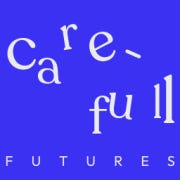This week's best things
Helsinki’s epic library, future storytellers, museum memory in wartime Ukraine, resisting busy-ness, the protective value of good ux, media’s traffic apocalypse, Medium's turnaround, foggy governance, Apple UI frost, sustainable comms, and a (new) podcast on building (real) things.

I visited Helsinki last week, Helsinki was great, a very cool city, the library was a particular highlight (beautiful building, beautiful services - more on that below).
Although sauna-ing with Finns is intense - I think my eyeballs were nearly boiling at one point. If you want Helsinki tips, get in touch.
Anyway, here are some good things.
A podcast chat with Neil Williams
A chat with the BFI's Exec Director of Technology & Digital Transformation, Neil Williams.
We spoke about transforming organisations through digital, comparisons between the civil service and the cultural sector, working in the open, and intentionally not empire-building amongst lots of other interesting things.

The Future Needs Better Storytellers: Designing with Imagination in Mind
Spotted via Imran Ali, a great piece from Elena Vasileva on the importance and value of imagination, and storytelling.
This idea of 'futures literacy' feels so vital to be able to retain some sense of optimism and sanity in the messy times we're living through.
"If you pause for a moment and look closely at how societies change, you’ll notice something interesting: change rarely begins with policy. It begins with imagination.
UNESCO has been exploring this through the lens of futures literacy, which they define as “the capacity to imagine and prepare for possible futures.” But this isn’t about forecasting or predicting what will happen. It’s about cultivating the ability to sense, question, and reshape what could happen — and to do so with intention, care, and curiosity.
In many ways, futures literacy is imagination turned strategic. And storytelling is one of its most powerful tools.
Because stories don’t just describe the world. They prime it. They create grooves in our cultural memory. They give shape to longing, and sometimes, permission to believe that something else is possible."
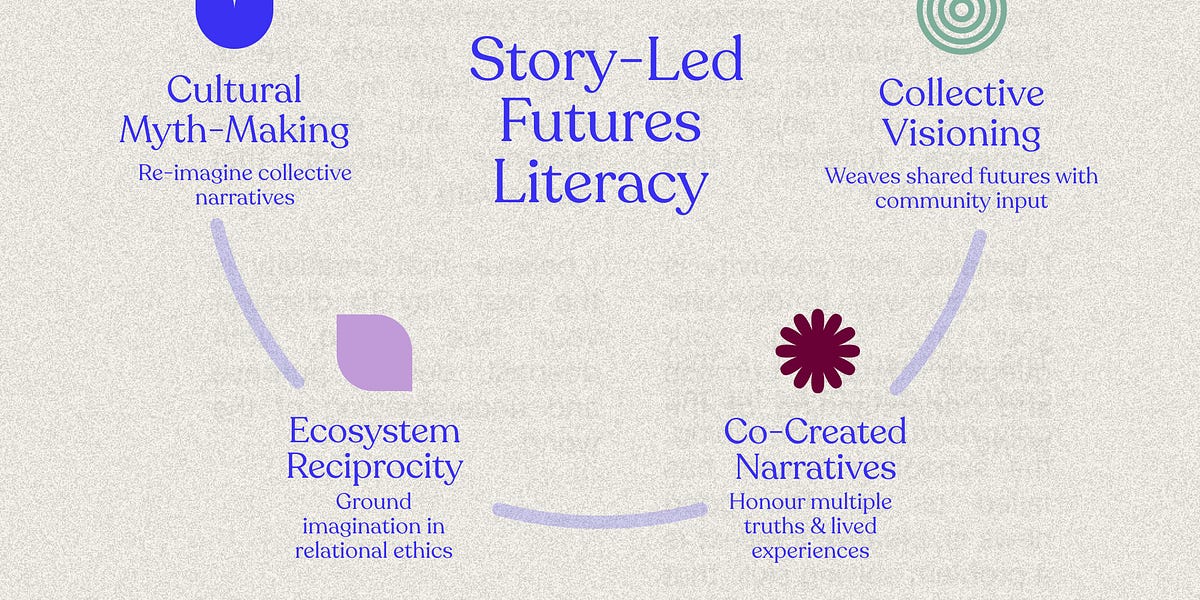
Inside the ghost museums of Ukraine: exhibits replaced by fragments of war and occupation
A really good piece in the Guardian highlighting the resilience and ingenuity of the people working at museums across Ukraine.
"At the moment, the institution is a kind of ghost museum. Its collection is absent; its doors are closed to the public because of the danger of attacks; and its community, whose collective memory it holds, has shrunk to half of its 40,000 pre-invasion number.
But there is still much work to do, says Ivanova. The museum staff now run walking tours of the city’s shattered historical buildings. They host temporary exhibitions inside damaged rooms (“loft style”, she jokes, of the rough walls and improvised feel), even if its visitors are now confined to local military personnel and invited guests.
“We are trying preserve memories, to fix them,” she says. “To show people how the city was before the war, what has happened to it – and how it looks now.”"

Fell in a hole, got out.
An admirably frank post from Medium CEO, Tony Stubblebine (although perhaps it's easier to be admirably frank when things are looking up).
"In 2022, Medium was losing $2.6M each month. We were also losing subscribers so you couldn’t even look at that spend as an investment in growth. Internally, we were kind of ashamed of the stories we were paying and promoting as winners on the platform. Our subscribers were less kind — calling out that we were swamped with get-rich-quick trash (and worse).
Then the startup ecosystem froze. There was no more investor money to shore up our dwindling bank account (not that we deserved investment).There was also no acquirer willing to take on a complicated, shrinking, expensive business.On the plus side, that made decision making easy: make Medium profitable or shut down.
There was even more woe than that, but there was also always a group of people who wanted to see Medium succeed. The shape of this story is what Kurt Vonnegut would call Man in Hole. We were doing well, we fell in a hole, we climbed out."

The rotten cult of busy-ness (part 2 of 2: some solutions)
A follow-up to last week's piece on why busy-ness is so prevalent in the cultural sector.
This week I try to suggest some solutions.
"Since publishing that piece, I’ve been pleasantly surprised by the responses it’s sparked, including one thoughtful comment (from Baker Richard's David Reece) that added a deeper layer: what if our constant busyness isn’t just an operational problem, but an ideological one?
What if this relentless state of urgency is actually the system working as designed? As David put it, we’ve elevated the individual above all else, internalised structural problems as personal failures, and turned reflection into a luxury we feel guilty for wanting.
This second part of the series offers some practical ways to push back but with that bigger picture in mind. These aren't fixes for a broken calendar. They’re small ways to perhaps resist a much larger erosion of space, clarity, and care in our work."
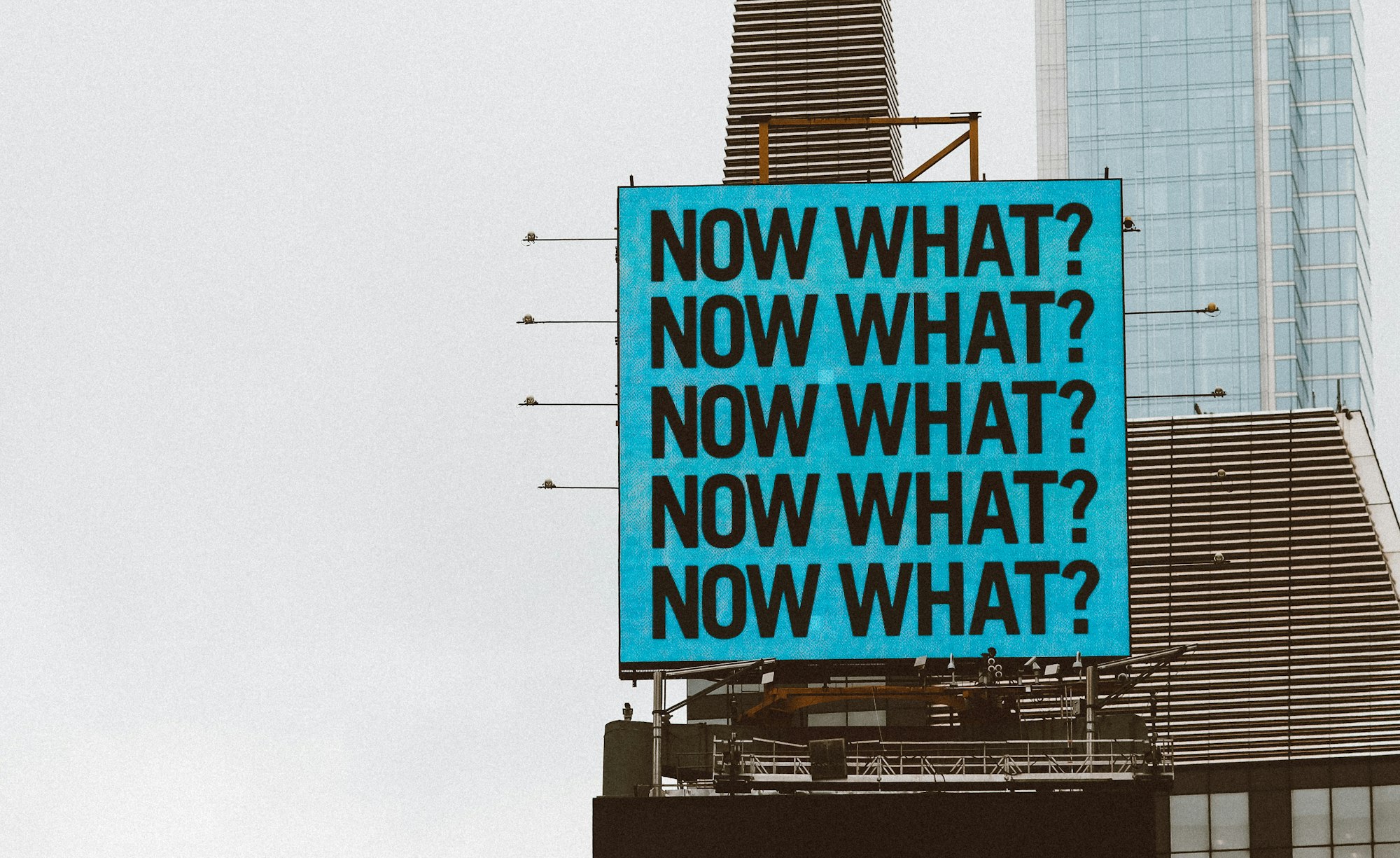
Helsinki built a library that brings a whole city together
A bit more on Helsinki Library's service model.
"The country’s flagship library — which is located opposite the Finnish Parliament in a gesture by the architects to signify that learning is as important as politics — aims to “embrace technology and progressive values” to provide a variety of innovative services alongside its lending collection of books. In fact, the 17,250-square-meter building contains a relatively small number of books — around 100,000. Two thirds of its space is dedicated to public amenities including a cinema, recording studios, a maker space, and areas for hosting exhibitions and events. [...]
“The challenge has been to update the use and needs of the library, which is stuck to a physical set up,” says Harri Annala, a librarian at Oodi who has been working in Helsinki since 2005. “We didn’t want to live in a romantic past where libraries were seen as churches sacred for knowledge.”"
It was interesting to see that the research and collaboration that informed the new library's approach was influenced by another cool place I've visited recently - Dokk in Aarhus.
There are lessons here I think.
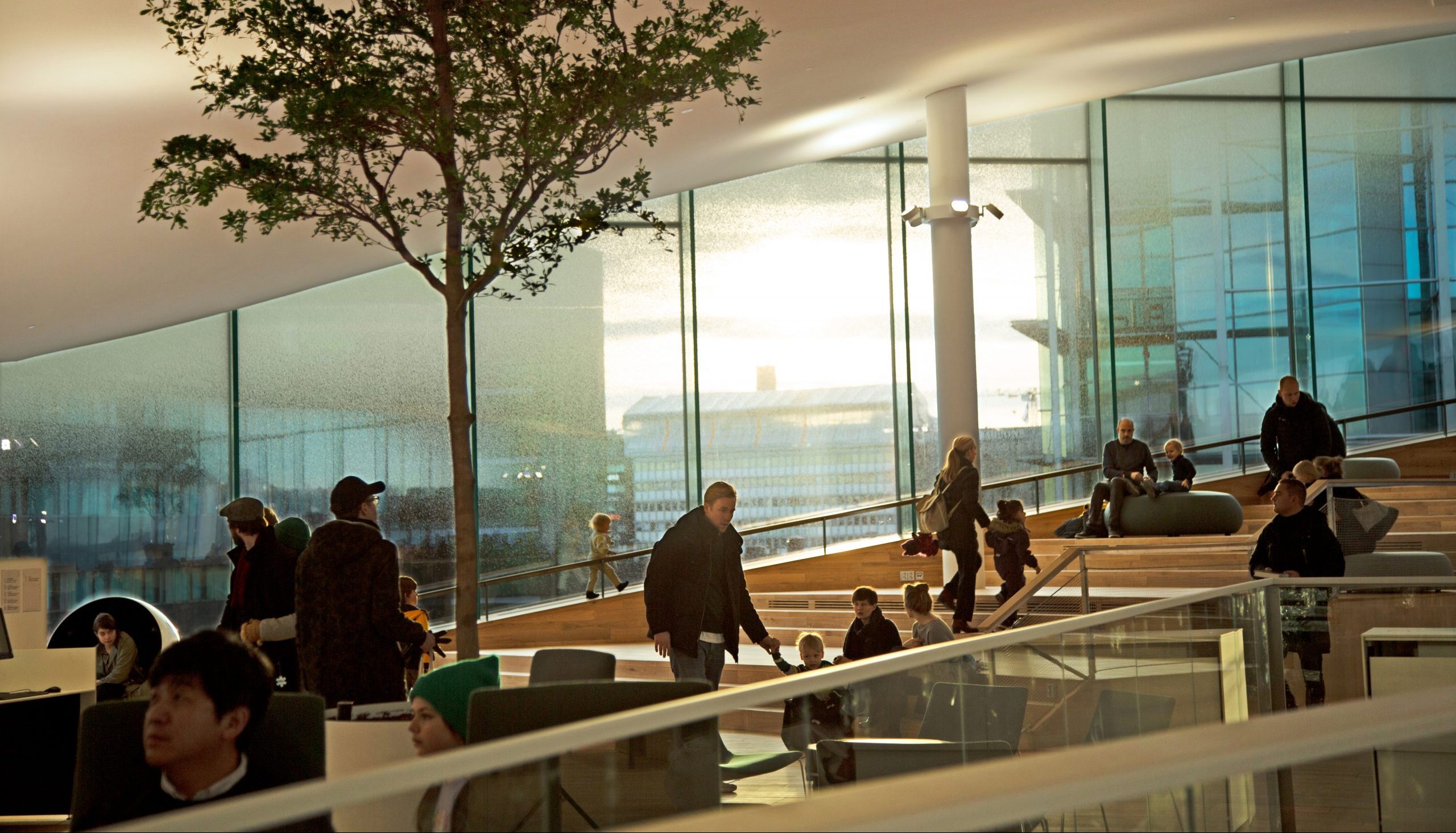
Can Good UX Protect Older Users From Digital Scams?
A good read about digital literacy, dark patterns, and the quiet, protective value of good user experience.
"Imagine navigating a confusing mobile app after a long day. Now imagine you’re in your 70s or 80s; your eyesight isn’t as sharp, your finger tapping isn’t as accurate, and every new screen feels like a puzzle.
As people age, they may experience slower processing speeds, reduced working memory, and lower tolerance for complexity. That means:
- Multistep processes are harder to follow.
- Unexpected changes in layout or behaviour can cause anxiety.
- Vague language increases confusion.
Decision fatigue hits harder, too. If a user has already made five choices on an app, they may click the 6th button without fully understanding what it does, especially if it seems to be part of the flow.
Scammers rely on these factors. However, good UX can help to reduce it."
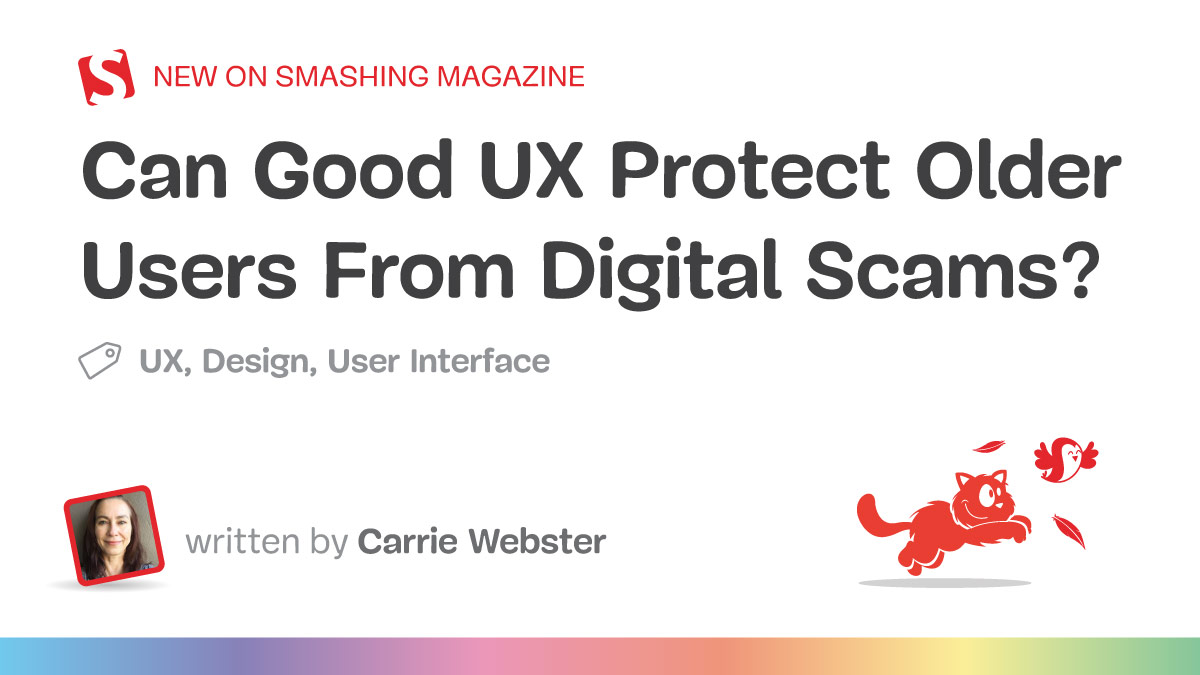
Inside the Media’s Traffic Apocalypse
Lots in this NY Mag piece about the impact of a diverse range of recent changes (mostly, but not entirely, driven by AI) on traffic to media websites. There are probably things in here that cultural orgs should be taking note of too.
"Traffic headwinds are not exactly a new problem for media companies, but it has only gotten worse. The problem started with Facebook pivoting away from the news in 2022 and has accelerated in recent months as Google makes seemingly corrosive changes to its search algorithm while rolling out the innovation that will one day replace traditional search results: AI summaries.
“Search engines now deliver answers instead of links, while social platforms aim to keep users within their walled gardens,” a senior New Yorker editor explained.
The social-media platform formerly known as Twitter, once a modest traffic generator that nevertheless functioned as a network for journalists and media organizations to share their stories and seed wider dissemination, has become virtually useless for media companies since owner Elon Musk throttled news links. “We don’t get shit from Twitter anymore,” said Tom Ley, editor-in-chief and co-founder of Defector. “You tweet out a link to an article and it just disappears.”"
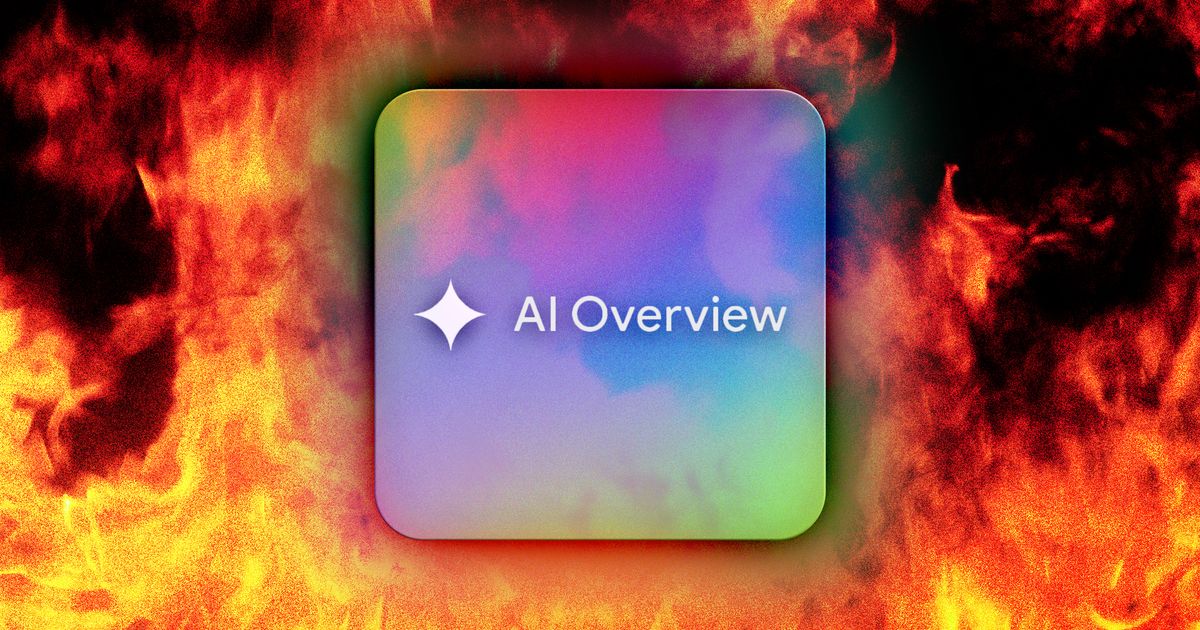
New podcast format
Later this year I'm going to trial a new, short-form format for the podcast. It will be called 'How we built' and will be focused on sharing the actual, honest stories of how (digital) stuff gets made.
If you are interested in being interviewed for this new series, or know about a project/product/initiative that would be interesting to feature, then let me know - [email protected], recording each episode will be an interview (probably online) that should take about 30 mins and will be (hopefully) straightforward and fun (and cathartic).
WeTransfer says files not used to train AI after backlash
WeTransfer has been at the centre of a backlash after it tried to update its terms of service with some very far-reaching changes to what they could do with content transferred via their services.
"The firm has now updated its terms, saying it has "made the language easier to understand" to avoid confusion.
WeTransfer said the clause was initially added to "include the possibility of using AI to improve content moderation" and to identify harmful content.
The terms had said WeTransfer could use content for purposes "including to improve performance of machine learning models that enhance our content moderation process".
It also included the right for WeTransfer to "reproduce, distribute, modify," or "publicly display" files uploaded to the service.
Some users on social media interpreted this as WeTransfer giving itself the right to share or sell the files uploaded by users to AI companies."
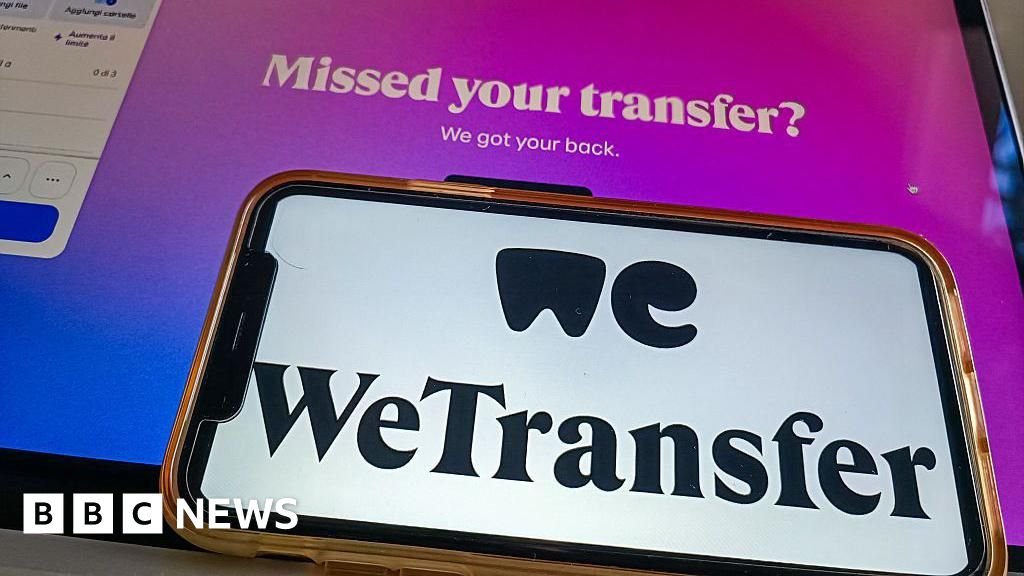
Governance happens in foggy weather
I spotted this being shared by lots of people over the past few weeks.
It's a post from Harry Metcalfe about 'conceptual' vs 'experiential' perspectives, the tension between policy, strategy, and delivery, and the shortcomings and benefits of these different ways of thinking and doing.
In reading this I was thinking about the reality that most cultural organisations are (really, actually) not large organisations, but I still think this is worth a read.
"We need to find space in our organisations for spontaneity, exception, serendipity and discretion. We do need good process, because a hard-experiential approach would definitely not be better – but we also need professional cultures that empower people to set process aside when it's justified, without fearing for their credibility (or their careers). We need to empower teams to make good decisions and then trust them to do the work. We need to practice describing what we know experientially in terms that others will understand, so that more options for transparency and accountability exist than the rendering of everything into numbers."

Apple just added more frost to its Liquid Glass design
Chalk this one up as 'looks fancy, didn't test it enough with actual users'.
"Apple’s new Liquid Glass design language just got a little more… frosted. In the third iOS 26 developer beta, Apple dialed back the transparency of navigation bars, buttons, and tabs that once allowed you to clearly see the content beneath them.
Apple already toned down the glassiness of Liquid Glass after many users complained that it was too transparent and made it more difficult to see certain options, like the icons inside the Control Center. This most recent beta makes Liquid Glass elements even more solid, likely as a way to improve readability. Still, some users see the change as a reversal of the flashy, glass-like design that Apple showcased at WWDC."

Gameshows, Cliff Richard and Stalin’s most hated play: the British culture sent behind the iron curtain
I enjoyed this account of the cultural exchanges that took place between the UK and the USSR during the Cold War.
"For two consecutive Tuesdays, millions of Britons watched Green and his sidekick Monica Rose present a heavily adapted version of the show from a rudimentary studio in the House of Friendship, a mock-Moorish castle near the Kremlin that served as a theatre for communist propaganda.
Subtitled “People to People” in the listings, the show was renamed “Do You Want to Go On?” in Moscow. Money did not feature. Instead contestants competed for points, which could be exchanged for state-made goodies such as toasters and televisions."

No to algorithms
A big, crowd-sourced, 'if you like x then you'll like y' music recommendations project.
Digital community
A reminder that the next sessions exploring what a community for people doing digital stuff in the culture sector could/should look like will take place (twice) on Monday 11th August:
The session will take place on Zoom, and will last 45 minutes. Register via the links below:
- Monday 11th August: 10:30am - 11.15am (Gothenburg) / 9.30am - 10.15am (UK) / 8.30pm - 9.15pm (Auckland)
- Monday 11th August: 5:00pm - 5.45pm (Gothenburg) / 4.00pm - 4.45pm (UK) / 11.00am - 11.45am (New York) / 8.00am - 8.45am (San Francisco)
And if you can't join us and/or have things to share, I have a short survey that I'm running here.
This week's consumption
Last week was mostly spent in saunas but I did also manage to read some books.
The Names by Florence Knapp was absolutely outstanding, one of the best things I've read this year.
I've started The Rachel Incident by Caroline O'Donoghue which is fun, and Glorious Exploits by Ferdia Lennon which thus far is, as I believe the kids say, 'a vibe'.
Also if you want a recommendation from my mum she really enjoyed The Artist by Lucy Steeds.
I haven't watched much TV this year really, but here's a big list of The Best TV Shows of 2025 (So Far).
See you next week
Thanks for reading all the way to the end, please enjoy these sassy goats.
To finish, a quick reminder that I'm a consultant who helps cultural organisations do better digital work.
I'm currently working with organisations on things involving:
- user research to inform digital investment priorities,
- technical strategy,
- leadership development,
- 'critical friend' advice,
- project governance,
- digital strategy,
- and digital readiness.
If it sounds like I could be useful, then let's chat.

